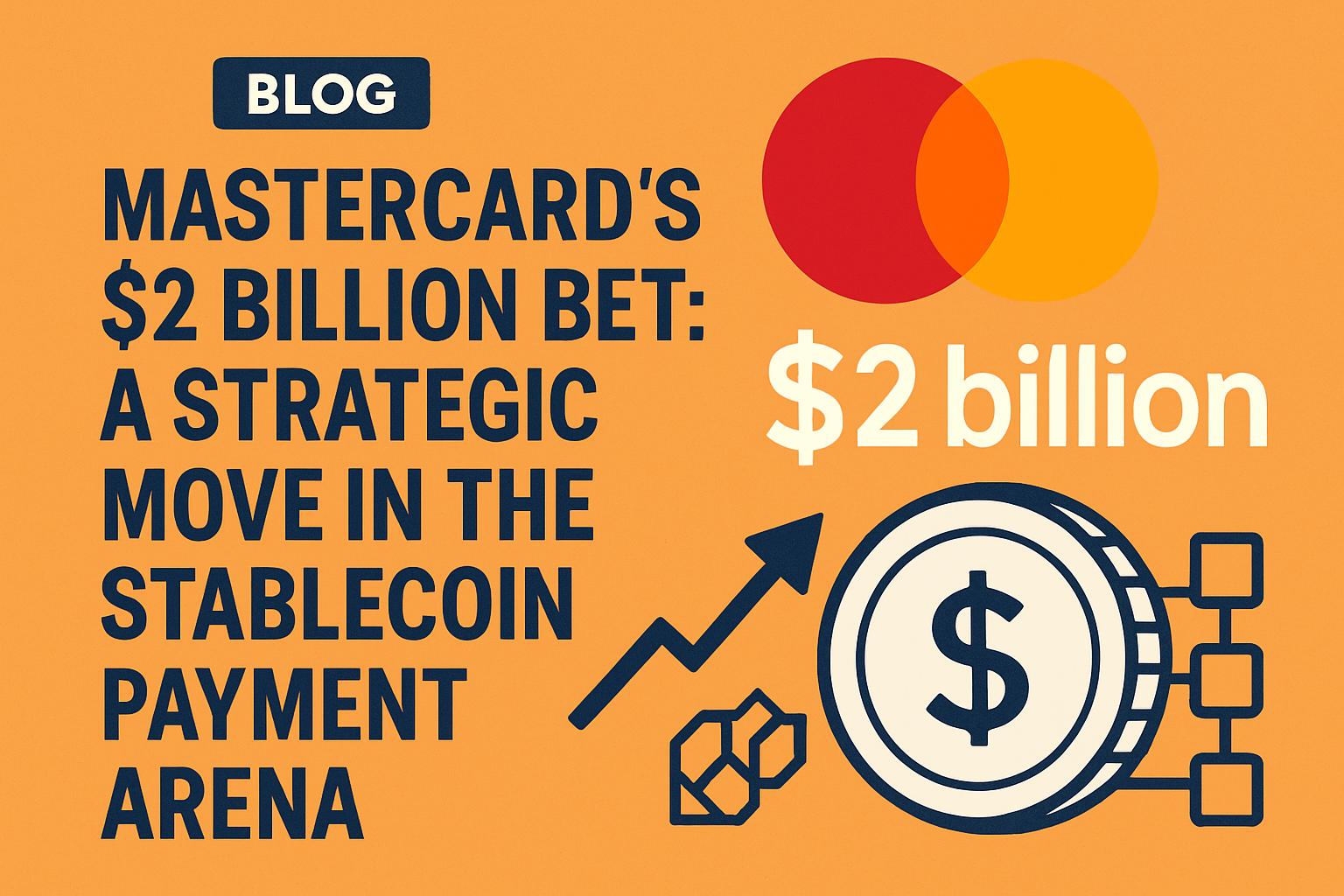Mastercard is setting its sights on the future of finance with a bold move to acquire cryptocurrency innovator Zerohash for an estimated $2 billion. This acquisition marks a significant push into the stablecoin domain, where fierce competition with giants like Coinbase, Stripe, and Visa is heating up.
The Rising Tide of Stablecoin Adoption
As cryptocurrency markets rebound and regulatory landscapes stabilize, global payment companies are rushing into the stablecoin sector. Mastercard’s substantial investment in Zerohash reflects a broader industry trend, complemented by recent moves from competitors such as Stripe’s $1.1 billion acquisition of Bridge and Visa’s expanded support for blockchain payments. These developments demonstrate the increasing prominence of stablecoins as a pivotal component in global payment infrastructures.
Behind the Scenes with Zerohash
Founded in 2017, Zerohash specializes in API infrastructure for payments and crypto transactions, enabling banks and fintech firms to seamlessly integrate stablecoin and tokenization capabilities. In just four months, Zerohash facilitated over $2 billion in tokenized fund flows, servicing major players like BlackRock and Franklin Templeton. With a recent valuation of $1 billion, Zerohash’s robust platform stands to significantly enhance Mastercard’s offerings in digital asset transactions.
Strategic Moves: From BVNK to Zerohash
Initially, Mastercard eyed London-based stablecoin startup BVNK, but exclusive agreements with Coinbase stalled the deal. Turning its focus to Zerohash, Mastercard aims to address gaps in its blockchain settlement and asset tokenization strategies. This acquisition would enable Mastercard to better control the narrative of future digital payments, aligning with its participation in the stablecoin alliance with firms like Robinhood and Kraken.
The New Payment Paradigm
Despite the potential threat stablecoins pose to traditional transaction fees, Mastercard is strategically aligning with these technologies. By acquiring foundational infrastructure, Mastercard seeks not only to survive the change but to thrive within it. The ongoing acquisitions by Mastercard, Stripe, Visa, and others reflect a major shift in payment paradigms, as the industry repositions itself around blockchain and stablecoin innovations.
If Mastercard succeeds with the Zerohash acquisition, it will secure a critical foothold in the evolving landscape of digital payments, offering a comprehensive suite of services from stablecoin issuance to payments. In doing so, it positions itself as a formidable contender in the next chapter of financial transactions.
This perspective on Mastercard’s strategic acquisition journey was first outlined by ABMedia.

![[News] Bitcoin at a Turning Point? 10x Research Signals a Bullish Macro Shift Ahead](https://cryptoexplores.com/wp-content/uploads/2025/06/new20250616.jpg)
![[News] Binance Lists $HOME, the Gas-Free, Bridge-Free All-in-One DeFi App](https://cryptoexplores.com/wp-content/uploads/2025/06/news20250617.jpg)